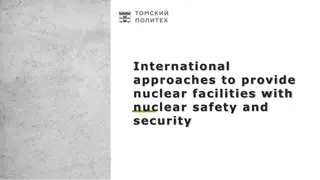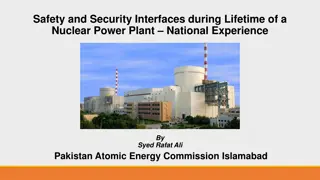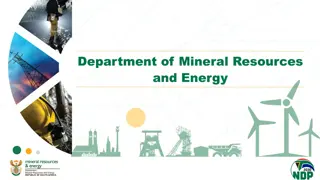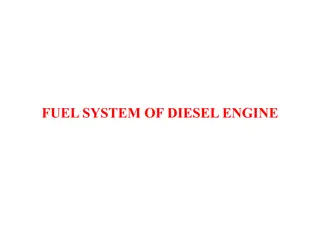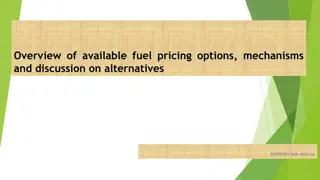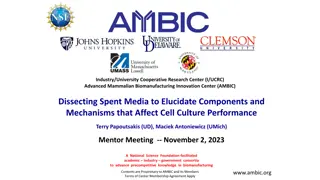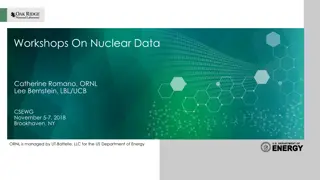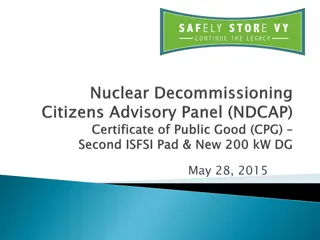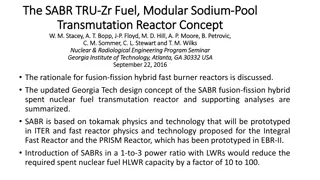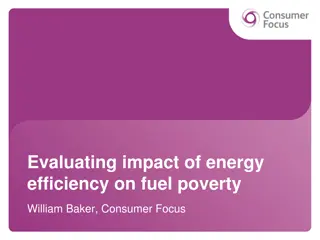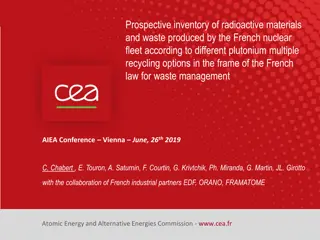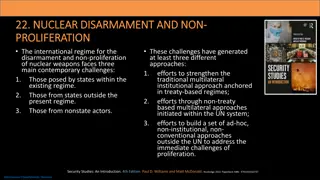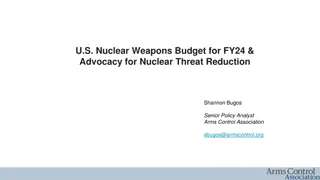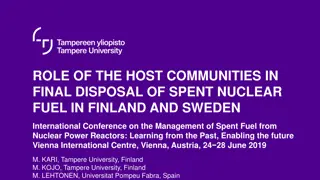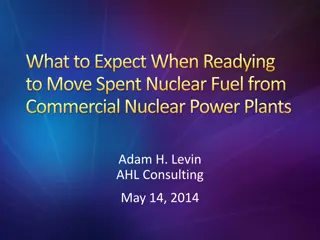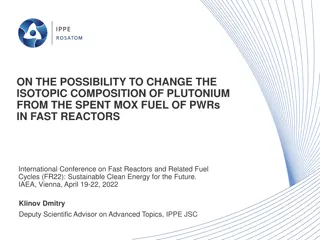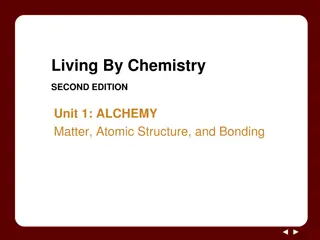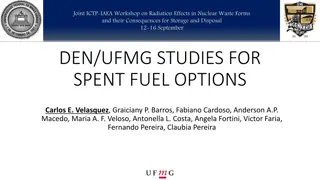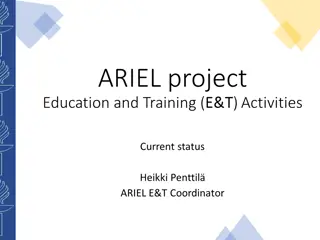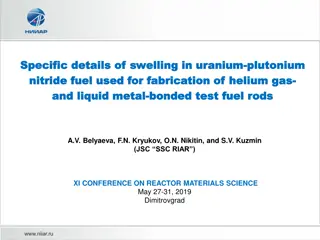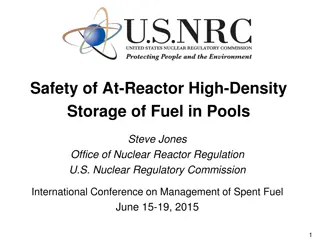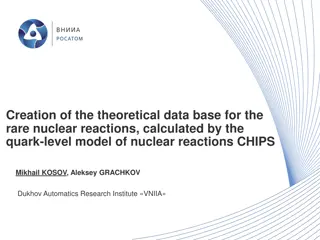Nuclear Data Needs for Spent Fuel Management Overview
Nuclear Data Needs for Spent Fuel Dry Storage and Radioactive Materials Transportation workshop held by US NRC discussed criticality safety, burnup credit, code validation, and organizational aspects in the field. The Division of Spent Fuel Management highlighted transportation and storage regulations, while emphasizing the importance of burnup credit and code validation for nuclear criticality safety. The discussion also touched upon uncertainties in reactivity due to nuclear data uncertainties and the use of keff sensitivity data.
Download Presentation

Please find below an Image/Link to download the presentation.
The content on the website is provided AS IS for your information and personal use only. It may not be sold, licensed, or shared on other websites without obtaining consent from the author. Download presentation by click this link. If you encounter any issues during the download, it is possible that the publisher has removed the file from their server.
E N D
Presentation Transcript
Nuclear Data Needs for Spent Fuel Dry Storage and Radioactive Materials Transportation Drew Barto Criticality Shielding and Risk Assessment Branch Division of Spent Fuel Management US NRC Workshop for Applied Nuclear Data Activities Washington, DC January 23, 2019 NMS S 1
Overview Background Code Validation for Criticality Safety Burnup Credit Accident Tolerant / Advanced Reactor Fuel Conclusion NMS S 2
Organization Commission Executive Director for Operations Nuclear Security & Incident Response Nuclear Reactor Regulation New Reactors Research Nuclear Material Safety and Safeguards Program Management, Policy Development & Analysis Rulemaking Fuel Cycle Safety, Safeguards & Environmental Review Decommissioning, Uranium Recovery, & Waste Programs Materials Safety, Security, State, and Tribal Programs Spent Fuel Management NMS S 3
Background Division of Spent Fuel Management: Transportation of Radioactive Material 10 CFR Part 71 Storage of Spent Nuclear Fuel 10 CFR Part 72 NMS S 4
Code Validation From ANS 8.24: The process of quantifying (e.g., establishing the appropriate bias and bias uncertainty) the suitability of a computer code system for use in nuclear criticality safety analyses. From ANS 8.1: Validation shall be performed by comparison to critical and exponential experiments, and the area of applicability for the validation should be established from this comparison. NUREG/CR-6361, Criticality Benchmark Guide for Light- Water-Reactor Fuel in Transportation and Storage Packages NUREG/CR-6698, Guide for Validation of Nuclear Criticality Safety Calculational Methodology NMS S 5
Burnup Credit From ANS 8.27: Burnup credit is the accounting for an overall reduction in reactivity associated with the irradiation of fuel in a reactor and with cooling time. Interim Staff Guidance 8, BUC for Storage and Transportation: Minor Actinides and Fission Products Major Actinides Applicant can perform analysis with Fresh UO2, MOX, & HTC experiments Use ORNL- supplied bias number NMS S 6
Burnup Credit, cont d Uncertainty in keff due to nuclear data uncertainties used to provide bounding estimates of the bias values From NUREG/CR- 7109: keff sensitivity data combined with nuclear data uncertainty information represented by cross-section covariance data to obtain uncertainties in the model keff. For 19 nuclides with no critical experiment data, 1.5% of the worth of those nuclides bounds their keff bias contribution. NMS S 7
Accident Tolerant and Advanced Reactor Fuel ATF Advanced Reactor FeCrAl Cladding Uranium salts (e.g., FLiBe) Chromium-doped pellets TRISO particles (gas reactor or molten salt cooled) Chromium-coated clad Other clad coatings Uranium silicide pellets Metallic fuel Silicon carbide clad Carbide, nitride fuel Metallic, non-cylindrical fuel Generally higher enrichment, up to 20% Slightly higher enrichment (5-6%), except metallic fuel (>10%) NMS S 8
>5.0 Weight Percent Code Validation: 0% 5% 93% 20% 100% LEU powder / pellet packages, UF6, UO2(NO3)2, fresh fuel assemblies, spent fuel assemblies Some research reactor fuel, fresh or spent, HEU powder / pellet / metal packages Longer irradiation cycles, ATF Research reactor fuel, fresh or spent (TRIGA, MTR, etc.) Advanced reactor fuel (MSR, SFR, HTGR) NMS S 9
ENDF/B-VIII.0 Disclaimer for Covariance Data Comments about the covariance in current ENDF evaluations --------------------------------------------------------- 1. The covariance data in the ENDF evaluations represents uncertainties and correlations in differential data. 2. The use of this covariance to calculate uncertainties for integral quantities such as Keff will usually result in an overestimate of the uncertainty. That said, comparisons to integral data are essential during the evaluation process and users should not be surprised if the *mean value* nuclear data allow for the accurate prediction of Keff, even if the covariances to not reflect this consideration. 3. The recommended methodology to overcome this problem is to adjust the covariance to add information from set of integral data that represents the physics of the system for which the adjusted covariance will be used. 4. More information on this topic: https://www.oecd-nea.org/science/wpec/sg33/ 5. CSEWG is currently studying the best covariance representation for future releases. NMS S 10
Conclusions Code validation is essential in demonstrating criticality safety of fissile material systems. S/U methods can facilitate validation of systems with few applicable critical experiments available for traditional validation techniques, or for design of experiments to fill validation gaps. S/U methods rely on high-fidelity cross- section covariance date for a large number of nuclides and reactions. NMS S 11


